SUBSCRIBE TO CONCORD
If you’d like to subscribe to our quarterly newsletter, CONCORD, please email us at [email protected].
You can access previous issues of the newsletter below:
If you’d like to subscribe to our quarterly newsletter, CONCORD, please email us at [email protected].
You can access previous issues of the newsletter below:

Drawing on the experience of the Joint UNHCR-WFP Programme Excellence and Targeting Hub supporting 14 assessments conducted jointly by UNHCR and WFP, this document identifies challenges commonly faced and presents good practice. The aim is to support Country Operations when assessing the needs and capacities of refugees and other forcibly displaced people, to inform evidence-based programming and targeting for basic needs assistance.
Topics covered include: preparing for an assessment, timeline, roles and responsibilities, technical considerations for data collection and analysis, as well as validating and disseminating results.
The full report is available here.
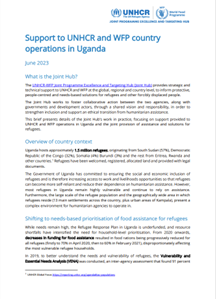
In December 2020, UNHCR and WFP country offices jointly requested support from the Joint Hub to assist them in (1) revising the socio-economic and protection vulnerability frameworks, in order to facilitate needs-based prioritisation; and (2) operationalising the shift to a needs-based prioritisation approach for the delivery of food assistance.
In response, the Joint Hub has provided various forms of support to the operations in Uganda, from early 2021 onwards. Support has included the deployment of a staff member as Joint Hub Country Coordinator for six months in 2022, four in-country missions and ongoing remote technical support.
The Joint Hub has contributed to building the capacity of staff in country operations throughout the process so that monitoring, analysis and implementation of the targeting approach, as well as future assessments, continue to be conducted jointly.
The full report is available here.

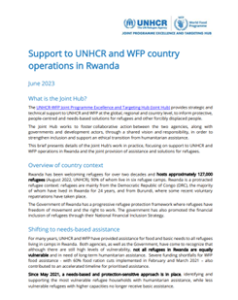
The Government of Rwanda has a progressive refugee protection framework where refugees have freedom of movement and the right to work. The government has also promoted the financial inclusion of refugees through their National Financial Inclusion Strategy.
For many years, UNHCR and WFP have provided assistance for food and basic needs to all refugees living in camps in Rwanda. Both agencies, as well as the Government, have come to recognize that although there are still high levels of vulnerability, not all refugees in Rwanda are equally vulnerable and in need of long-term humanitarian assistance. Severe funding shortfalls for WFP food assistance – with 60% food ration cuts implemented in February and March 2021 – also contributed to an accelerated timeline for prioritised assistance.
Since May 2021, a needs-based and protection-sensitive approach is in place, identifying and supporting the most vulnerable refugee households with humanitarian assistance, while less vulnerable refugees with higher capacities no longer receive basic assistance.
The full report is available here.

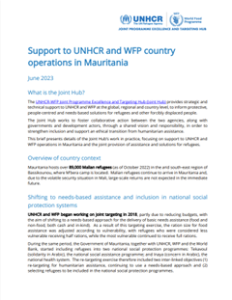
UNHCR and WFP began working on joint targeting in 2018, partly due to reducing budgets, with the aim of shifting to a needs-based approach for the delivery of basic needs assistance (food and non-food, both cash and in-kind). As a result of this targeting exercise, the ration size for food assistance was adjusted according to vulnerability, with refugees who were considered less vulnerable receiving half rations, while the most vulnerable continued to receive full rations.
The full report is available here.

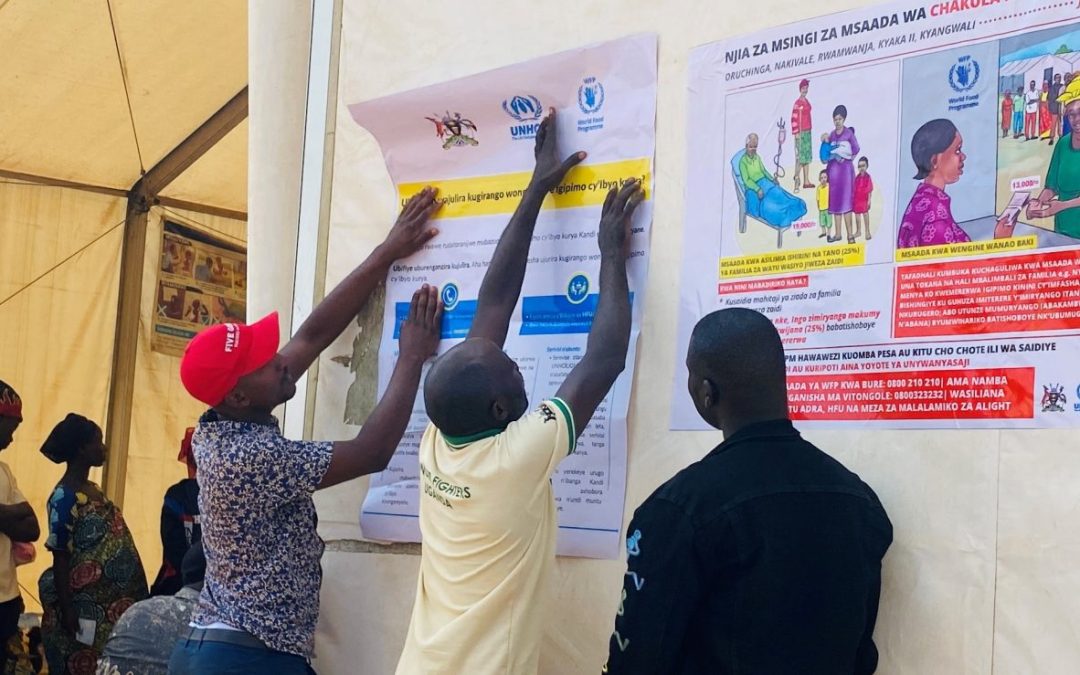

Sign up now to the second cohort of the training course on Applying the UNHCR-WFP Joint Targeting Guidelines, facilitated by the UNHCR-WFP Joint Programme Excellence and Targeting Hub.
This course runs from September to October 2022 and is available to UNHCR and WFP staff via the links below:
The training is divided into two parts. Colleagues must first undertake a basic course on the Fundamentals of UNHCR-WFP Joint Targeting via Learn&Connect or WeLearn. Upon completion, you can then sign up for the cohort based course on Applying the UNHCR-WFP Joint Targeting Guidance: A series of 2.5 hour online workshops, run on a weekly basis over eight weeks, and conducted virtually using Microsoft Teams.
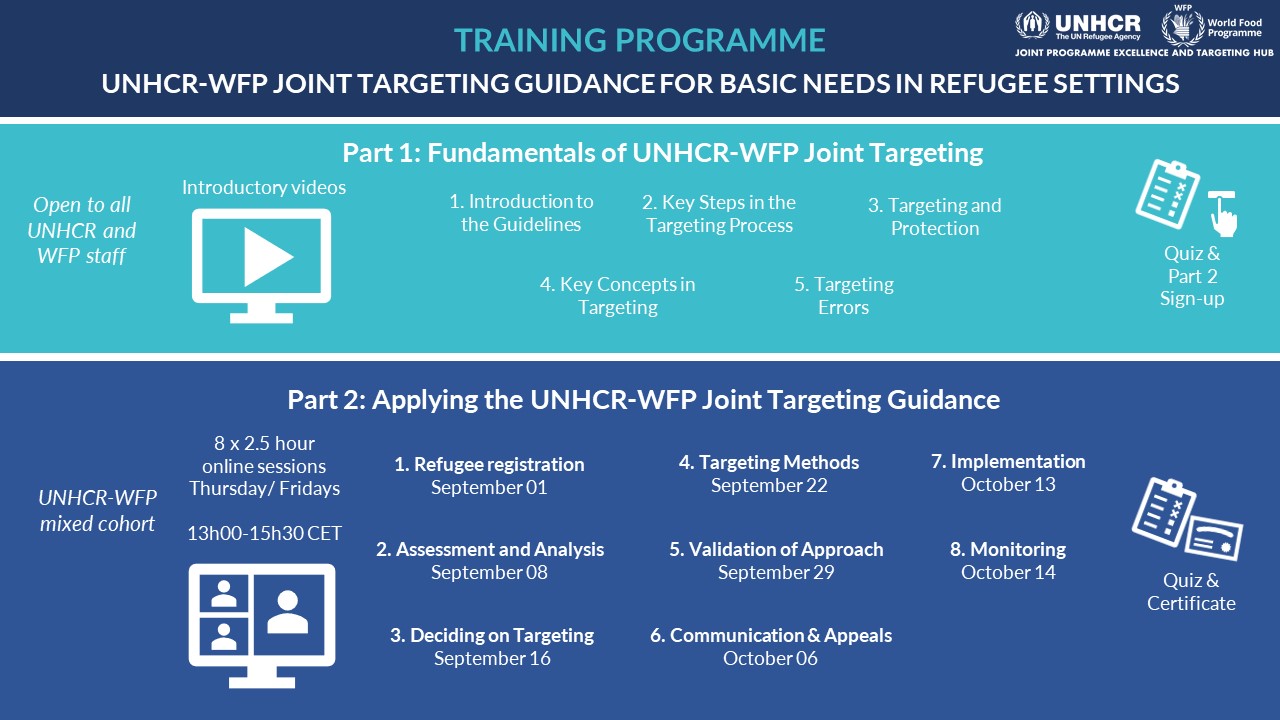
You can read the training participant feedback report for the first cohort to find out more about the course. This course is fact sheet recordable and provides a certificate.
In case of oversubsciption, applicants for the course on Applying the UNHCR-WFP Joint Targeting Guidance involved in programmatic activities related to targeting in refugee settings will be prioritized.
To get in touch with the UNHCR-WFP Joint Programme Excellence and Targeting Hub team, you can email us at [email protected].